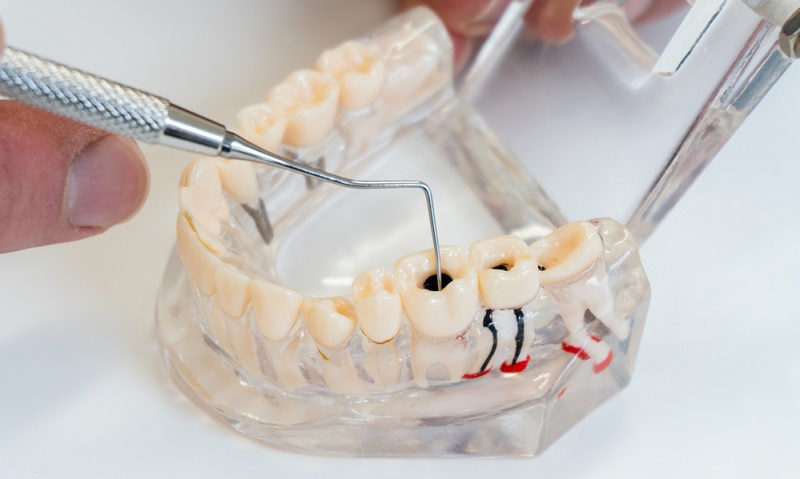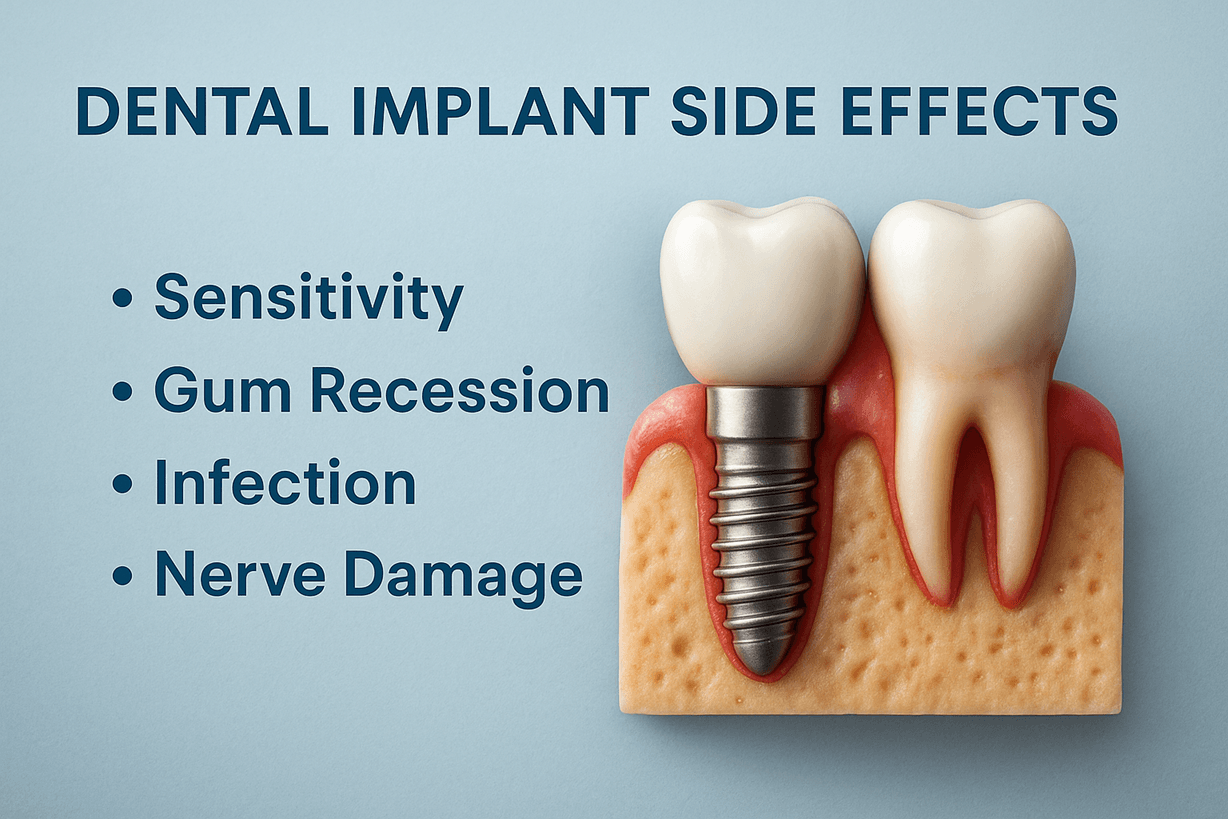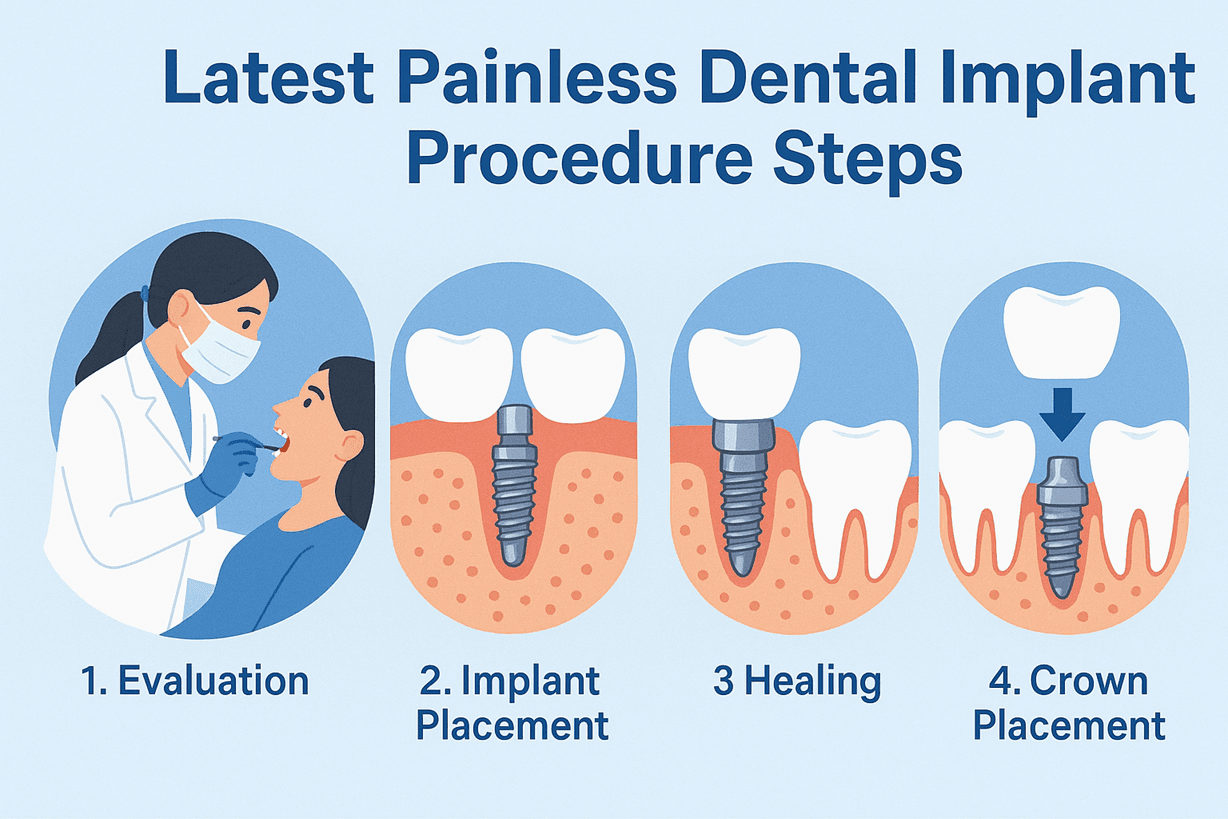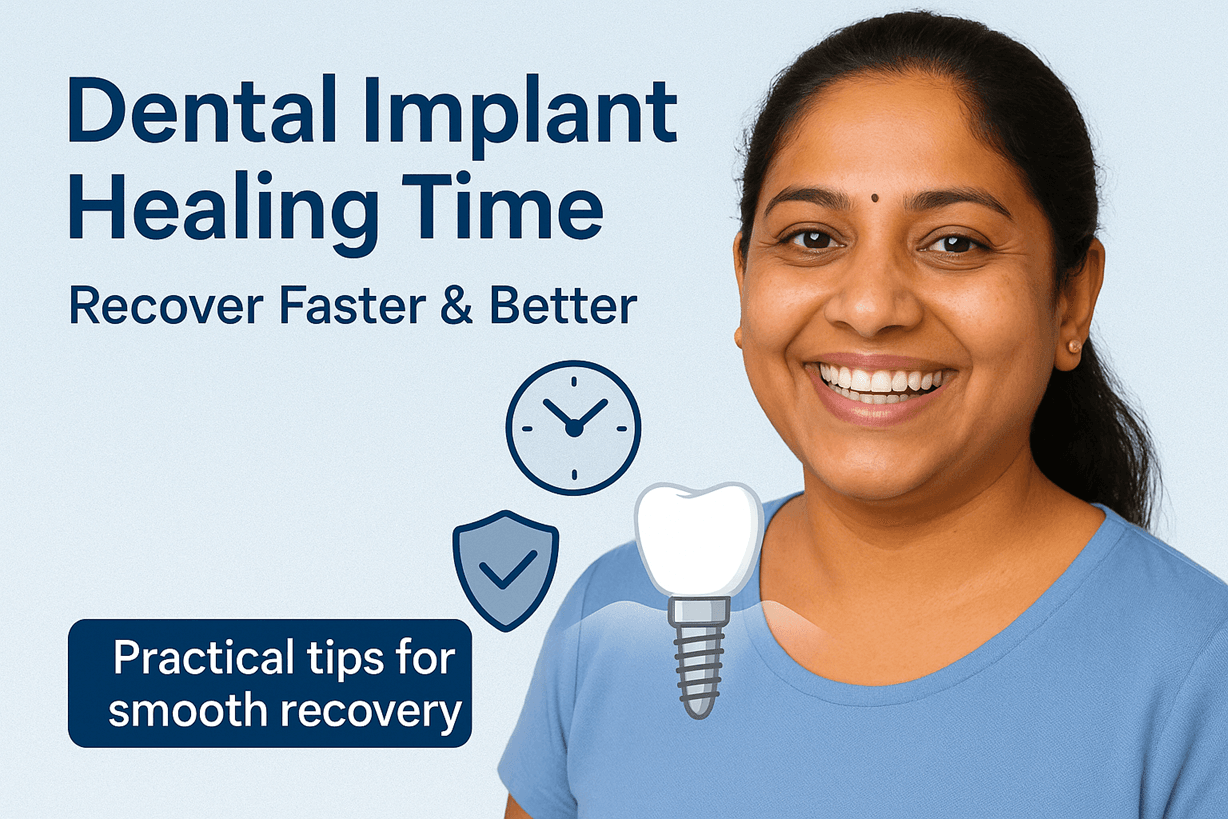Contents

Are you considering getting a root canal treatment? This common dental treatment can help save your natural tooth from decay, but it can be intimidating for some people.
In this blog post, we'll provide you with all the information you need to know about root canal treatments - from what they are and when they're needed, to how to prepare for them and what to expect afterwards.
Plus, get helpful tips on maintaining optimal oral health after your procedure! So keep reading if you want to learn more about this important dental care topic.
What is Root Canal Treatment?
Endodontic therapy, commonly known as root canal treatment, is a dental technique used to treat infection and decay that has reached the interior layer of the tooth. It entails removing any damaged or infectious tissue from within the tooth.
Following this, an artificial substance known as gutta-percha is inserted into the area left by the removal of infected or damaged tissue. This substance keeps bacteria from entering the root canal system while allowing nutrients to reach and nourish it.
With modern techniques such as warm vertical compaction (WVC), the procedure can be accomplished in one visit rather than several.
Root canal therapy begins with X-rays to determine how deep the infection has spread within your tooth.
The dentist will then use special tools to open up your tooth and remove all traces of infection or decay from within it. Your dentist may need to insert posts for extra support before filling in the empty gaps with gutta-percha or composite fillings.
In some cases, crowns are needed for further protection after root canals have been performed successfully. The success rate for root canal treatment is high—about 95%.
However, it's important to note that even though most patients experience relief shortly after their treatment, there's still a chance that their symptoms could return if they don't follow post-treatment instructions properly or maintain proper oral hygiene habits afterwards.
With regular dental exams and good at-home care like brushing twice daily with fluoride toothpaste and flossing daily, you can help ensure long-term success after root canal treatment!
When Might You Need a Root Canal?
If you're wondering when you might need a root canal, consider the following signs and symptoms:
- First, if you have severe pain in the affected area that does not go away with over-the-counter drugs and rest, you may require a root canal.
- Tenderness and swelling in the gums near the damaged tooth may also suggest an infection inside your tooth that needs to be treated.
- Finally, if you observe discoloration or dark patches on your teeth, this could be a symptom of internal damage.
If any of these symptoms relate to you, you should see your dentist right soon so that they can inspect and diagnose your condition. Your dentist will most likely take X-rays and run additional tests to decide whether a root canal is required.
However, in most circumstances, if there is obvious damage visible on the outside of the tooth, a root canal is more than likely required to prevent future harm.
Finally, if you are experiencing pain or discomfort in one of your teeth, as well as swollen gums or discoloured teeth, you should call your dentist as soon as possible so that they can examine your situation and provide appropriate treatment choices.
Benefits of Root Canal Treatment
Root canal treatment is a common dental procedure that can help save your natural tooth from extraction.
This treatment involves removing the infected or damaged tissue from inside the root of the tooth, cleaning out any debris, and then filling it with a special material to seal it off.
The benefits of root canal treatment include relief from pain, preserving your natural smile, and preventing further damage to your teeth.
One of the most evident advantages of root canal therapy is pain alleviation. An infection in your tooth can cause excruciating pain and suffering owing to inflammation and pressure building within the tooth.
Root canal treatment relieves this pressure by emptying any fluids present and eradicating any germs that are causing infection in the procedure. You will no longer experience pain or discomfort in the afflicted area once the procedure is completed.
Another advantage of root canal therapy is the ability to keep your natural smile for many years. Without this form of dental care, you would most likely be forced to have an extraction, which could result in an ugly gap between your teeth.
However, with a successful root canal treatment, you can maintain your original tooth while avoiding any potential future trauma caused by having a missing or damaged tooth with no replacement choices available, such as dentures or bridges.
Finally, root canals serve to avoid further damage caused by dental infections such as abscesses and periodontal disease, which can lead to major issues such as bone loss and gum recession if left untreated over time.
How Safe are Root Canal Treatments?
Root canals are a common dental procedure that involves removing the infected or inflamed pulp from a tooth.
This procedure is used to save an affected tooth from being extracted, but there are potential complications and risks associated with it. Potential Complications and Risks Associated with Root Canal Treatment.
Potential Complications and Risks Associated with Root Canal Treatment
1. Infection Risk:
Bacteria in the mouth pose a risk of infection during and after root canal therapy. As a result, brushing twice daily and flossing regularly is essential both before and after the treatment.
Antibiotics may also be administered before or after the root canal if your dentist feels an infection is present or impending.
2. Nerve Damage:
One of the most serious hazards of root canals is nerve damage inside your tooth. Though uncommon, this can happen if a nerve becomes caught during drilling or is injured as a result of infection-induced inflammation.
When you eat particular foods, you may have discomfort or numbness in your jaw. In such circumstances, additional therapy, such as surgery, may be necessary to heal any nerve damage.
3. Tooth Cracks:
In addition, there is a danger of harm during root canal treatment owing to poor use of devices like drills or files, which could produce fissures in your teeth, resulting in discomfort and sensitivity when exposed to hot/cold temperatures.
To avoid this, dentists must take their time when doing dental treatments and ensure that all tools are properly sterilised before being used on each patient's teeth.
Dental Care After a Root Canal Treatment
After a root canal treatment, it is important to take good care of your teeth and gums. This includes brushing your teeth twice a day, flossing daily, using an antimicrobial mouth rinse, and scheduling regular dental check-ups.
It is also important to use fluoride toothpaste to help protect the treated area from further decay or infection.
Additionally, you may need to have a crown placed over the treated tooth to protect it from further damage.
When caring for your teeth after a root canal treatment, you must avoid hard foods like nuts or ice cubes as these can cause further damage to the sensitive area around the root canal procedure site.
If there are any gaps between your teeth or if you notice any sensitivity when eating or drinking hot foods and beverages then you should contact your dentist immediately so they can advise on what action needs to be taken.
Finally, if pain persists after a few days following root canal treatment then this could indicate an infection has occurred.
Therefore antibiotics will likely be prescribed by your dentist to clear up any bacteria present in the area around the treated tooth before any other dental work is performed on that particular tooth again.
By taking proper care of our teeth we can ensure that our smile stays healthy and beautiful for years!
Tips for Maintaining Optimal Oral Health
Proper oral hygiene is essential for overall health, but it can be difficult to know where to start when looking after your teeth and gums.
The first step is to brush twice a day with fluoride toothpaste, paying special attention to the back teeth and areas around fillings, crowns, and other dental work.
It’s also important to floss daily, as this helps remove food particles and bacteria that can get trapped between your teeth.
Additionally, using an antiseptic mouthwash can help reduce plaque build-up as well as freshen your breath.
In addition to regular brushing and flossing, one of the most important tips for maintaining optimal oral health is scheduling regular visits with your dentist or dental hygienist.
During these appointments, they will examine your mouth for any signs of decay or disease and provide advice on how to keep your smile healthy in between checkups.
For those who have had cavities filled or need root canal work, it’s especially important to follow up with these professional appointments to prevent further damage from occurring down the line.
Finally, diet plays a big role in oral health so, it’s important to pay attention to what you are consuming daily.
Try opting for foods high in calcium such as dairy products like yoghurt or cheese; Crunchy fruits and vegetables like apples or celery, nuts, fish, eggs, and whole grains.
Lean proteins like poultry or tofu; and green tea have been found helpful in preventing gum disease due to their anti-inflammatory properties!
Reducing sugar intake is also key as this contributes heavily towards tooth decay over time – so limit sugary snacks whenever possible!
Root canal treatments are an important and often necessary dental procedure that can help save your natural teeth from decay.
While the thought of a root canal may be intimidating for some people, it's important to remember that the success rate for this treatment is very high and the discomfort associated with it is usually minimal when done properly.
By following pre-treatment instructions such as
- Maintaining good oral hygiene habits.
- Eating light before your appointment.
- Wearing comfortable clothing.
- Staying on top of regular dental checkups.
- Brushing twice daily with fluoride toothpaste.
- Flossing regularly and avoiding hard foods to protect your treated tooth.
You can look forward to enjoying a healthy smile for many years to come!
Final Thoughts
Oral hygiene is critical for general health, but it can be tough to know where to begin when it comes to caring for your teeth and gums.
Brush twice daily with fluoride toothpaste, paying specific attention to the back teeth and areas around fillings, crowns, and other dental treatments.
Flossing every day is also crucial because it removes food particles and bacteria that might become stuck between your teeth.
Using an antibacterial mouthwash can also help prevent plaque buildup and freshen your breath.
One of the most important tips for maintaining good oral health, in addition to regular brushing and flossing, is to schedule frequent checkups with your dentist or dental hygienist.



